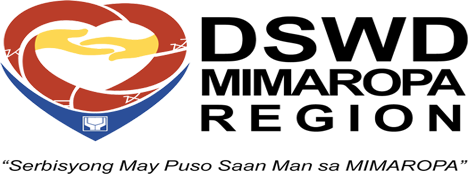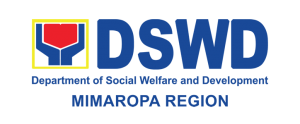Coron, Palawan – Secretary Corazon “Dinky” Juliano-Soliman ensures provision of more poverty-alleviation services in the recently concluded Joint National and Regional Advisory Committee meeting, April 25, 2014 in Coron, Palawan.
Six barangays were visited for needs assessment by the joint-committee members from 11 National Government Agencies (NGAs). Sec. Soliman and the team had a chance to observe and interview beneficiaries to gain better perspective on program impact. Three major areas of concern were identified from the full-day site visitation – education, health and livelihood.
For education, accessibility to school was a major problem since children need to travel far distances and pay additional fare cost going to the main island. “Nag-uusap po kami ng nasyonal at lokal na pamahalaan para po matugunan ang inyong problema at magtayo nga po ng dormitoryo para mas malapit sila sa eskwelahan sa main land,” said Sec. Soliman. The regional office of DSWD is tasked to tap the Yellow Boat Foundation to provide small boats as school service. The Department of Education (DepEd) will also prioritize reconstruction and rehabilitation of day care centers and elementary school buildings damaged by typhoon Yolanda through their quick response fund and will also provide additional teachers to resolve decrease multi-grade teaching in the areas.
Ailene, an IP beneficiary said, “Nagpapasalamat po ako sa Pantawid dahil nahikayat po talagang mag-aral ang aking mga anak. Sana po ay matulungan kami hanggang sa pagkokolehiyo niya.” Thus, the DSWD will coordinate with Commission on Higher Education (CHED) and National Commission for Indigenous People (NCIP) to access college scholarship programs for the Indigenous People (IP). Furthermore, DepEd will set up review classes for graduating students who will be taking up entrance exams. DSWD and DepEd aim to implement the use of the mother language in Family Development Discussions and in regular elementary education for IPs.

Moreover, Pantawid Pamilya beneficiaries also have difficulty in complying with the conditionalities in health due to factors such as: inaccessibility to health centers; insufficient supply of vaccines, medicines and birthing equipment; and lack of health personnel particularly midwife. The Department of Health (DOH) agreed to provide construction and improvement of health facilities especially affected by typhoon Yolanda. DOH will earmark the infrastructure development and health staff training in the 2015 to 2017 budget.
Flexibility and culture-sensitive health care protocols and delivery will be crafted to address the needs of the IPs. Frontlining tribal leaders and barangay officials as speakers for the benefit of deworming and other health practices to IP communities are looked into to encourage availing of different health services.
In livelihood, the Department of Labor and Employment will endorse the beneficiaries for vocational training to TESDA and assist in creation of their livelihood project proposals with particular exploration of livelihood opportunities in seaweeds, duck-raising and tourism. Topics on entrepreneurship, marketing, management, leadership and entrepreneurial values are also tasked to be included in the FDS module.
The regional office of the Department of Science and Technology (DOST) and DSWD will explore the construction of water supply and salination of drinking water in the barangays. The DOST will also share their “tapayan” technology for areas lacking potable water. On the other hand, DSWD MiMaRoPa will tap the Department of Public Works and Highways (DPWH) in building farm-to-market roads.
Additionally, DSWD MiMaRoPa will revisit Community Ancestral Domain Sustainable Development and Protection Plan to improve management and benefit-sharing of IPs and sustain their livelihood initiatives.
The field visit aims to strengthen operational mechanisms and institutional arrangements among partner agencies. The National Advisory Committee meeting is done quarterly while field visit is conducted twice a year. ###
![]()


